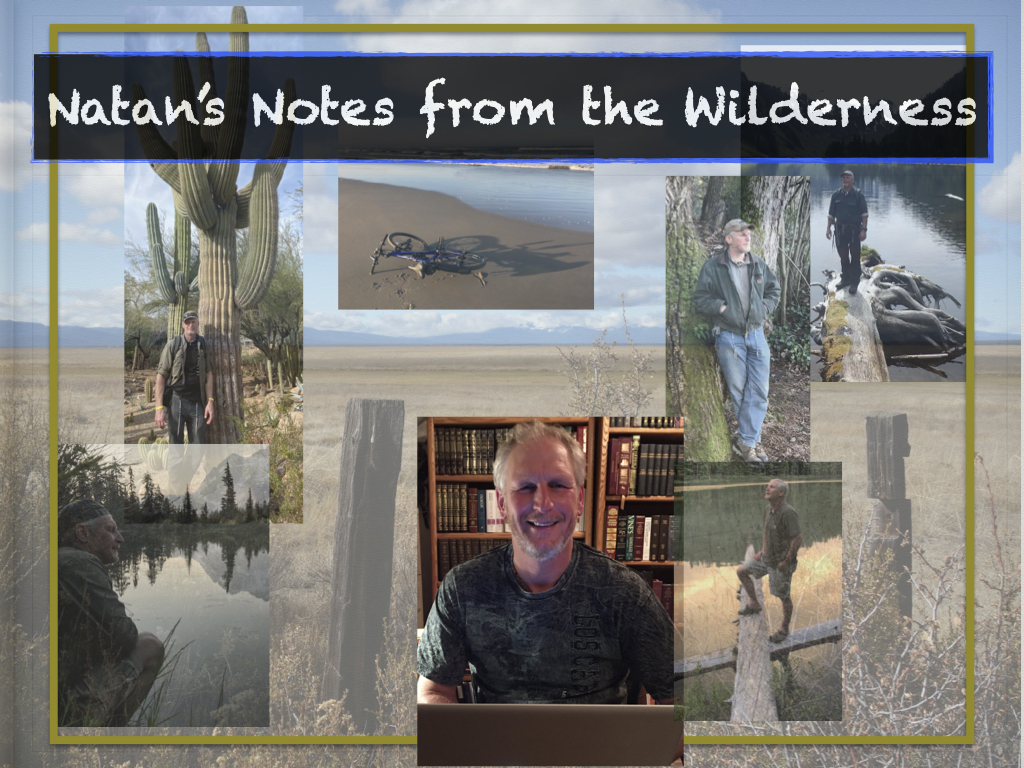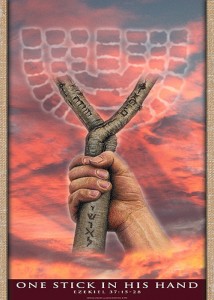
Ezekiel 7
Ezekiel 7:19, Throw their silver…gold like refuse.When the judgments of Elohim become so severe with war, pestilence and famine (v. 15) that money as well as gold and silver will be of no value to anyone. After all, if there is no food to buy due to famine, what good is money of any kind? Until that time, though, money is of great value.
Ezekiel 9
Ezekiel 9:3, The glory of Elohim.(See also Ezek 10:4, 18.)Ezekiel watched in vision as the glory of Elohim departed the temple in Jerusalem prior to its destruction. The glory of Elohim never returned to Jerusalem, even in the second temple, until Yeshua the Messiah came to the temple. Haggai the prophet predicted the coming of this greater glory (Hag 2:9).
Ezekiel 9:4, Mark [Heb. tav] on the forehead.The letter tav, the last letter in the Hebrew alphabet, pictographically, apparently, signifies “the sign of the covenant.” This would indicate that YHVH protects from his divine judgments those with whom he has a special covenantal relationship , which are those who have been “bought by the blood of Yeshua” and are “under the blood of Yeshua” as the Israelites were on the first Passover in Egypt when the messenger of death passed over those who had the blood of the lamb on the doorposts of their houses (Exod 12:7, 12–13 cp. Rev 12:11). This also recalls Rev 7:3 and 14:11 where Elohim will write his name on the foreheads of his end times saints thus marking them to be spared from his severe judgments upon the wicked.
Ezekiel 9:6, Begin at my sanctuary. Elohim’s judgment begins first with his spiritual leaders who are supposed to teach his people his ways, and from there moves out to the people who are to be a spiritual light to the nations. As Peter says, “for the time has come for judgment to begin at the house of Elohim” (1 Pet 4:17).
Ezekiel 10
Ezekiel 10:18–19, The glory of YHVH departed. As the glory of YHVH came down upon the tabernacle of Moses and filled it when it was initiated, and has happened similarly when the Temple of Solomon was dedicated, even so when the sanctuary became corrupt because of men’s abominable practices and was about to fall under YHVH’s judgments, the glory of Elohim had to depart. This speaks of the grace of Elohim that he had inhabited his temple for so long despite the sins of Israel. Similarly, Spirit of Elohim dwells within the saints who are now the temple of the Spirit of Elohim, and if and when the saint walks away from Elohim, because of the grace of Elohim, his Spirit remains in the person to convict him of his sin and to bring him back to Elohim, even as the prodigal son in Yeshua’s parable when in the distress of his spiritual waywardness was convicted of his sin and brought back to his father. However, if the sinner refuses to repent and to return to Elohim, then heaven’s judgments begin to be poured out until either repentance occurs, or until, due to the hardness of heart, the unrepentant sinner resisting the grace and Spirit of Elohim commits the unpardonable sin and is lost forever (Heb 6:6; 10:26).
Ezekiel 11
Ezekiel 11:16, A little sanctuary [Heb. miqdash]. Miqdash is another name for the Tabernacle of Moses and derives from the word kadash meaing “to be clean, to make clean, to pronounce clean” and figuratively means “to be holy or set-apart. The primary root verb kadash is a cognate of the noun kodesh meaning “a sacred or holy place” and is another name for the sanctuary or holy place of the Tabernacle of Moses. This verse appears to be a prophecy regarding the infilling of the saints with the Spirit of Elohim and the Spirit’s indwelling presence in the redeemed believer’s life such that they are, as Paul describes it, the temple of the Set-Apart Spirit of Elohim (1 Cor 3:16; 2 Cor 6:16; Eph 2:21–22; 1 Pet 2:5 cp. Acts 7:48). The spiritually clean, holy or set-apart saint has replaced the physical temple that has not existed since its destruction in A.D. 70.
Ezekiel 12
Ezekiel 12:15, Will spare a few. YHVH always spares a remnant of faithful saints, a righteous seed, who will carry on his work as a light to the nations and be a witness of him wherever they go.






